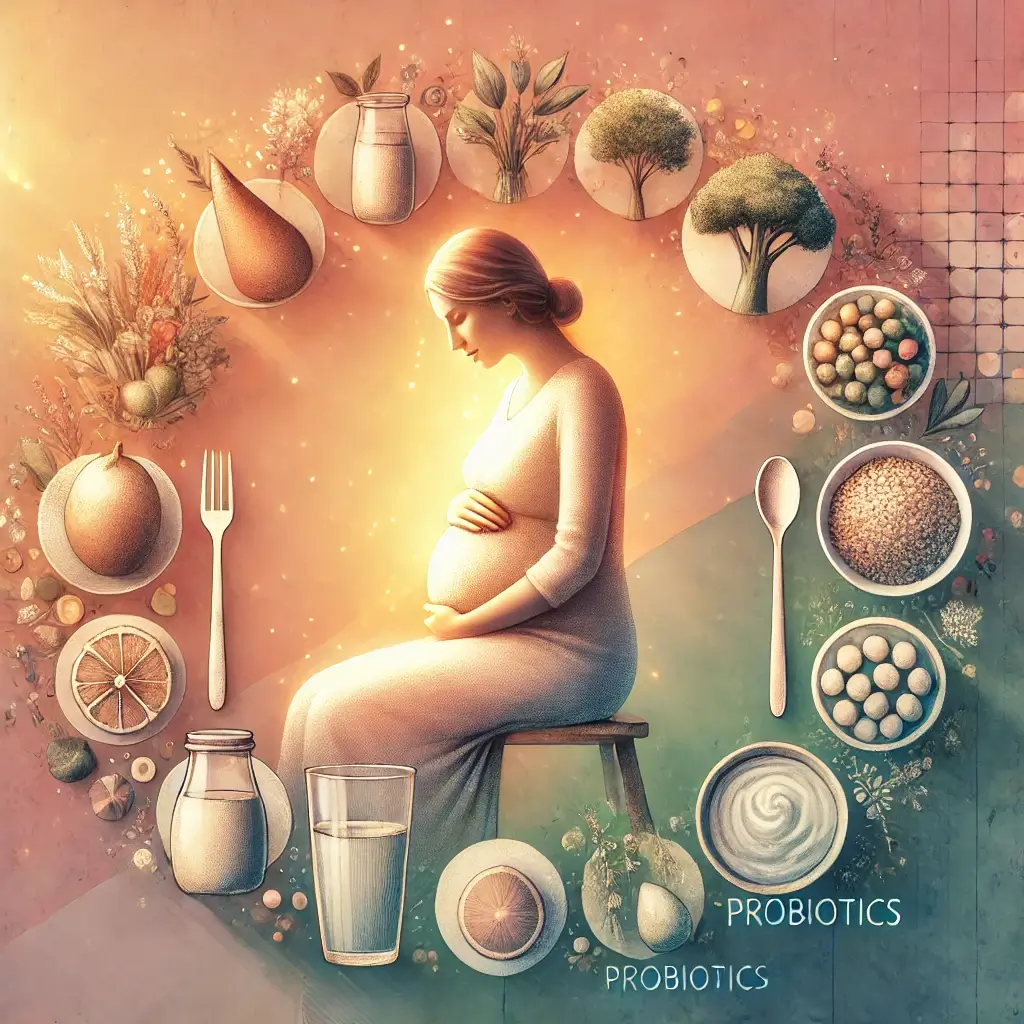Understanding Pregnancy’s Impact on Digestive Health
Pregnancy is one of the most transformative periods in a person’s life, marked by incredible physical and emotional changes. Among the many adaptations the body undergoes during this time, the digestive system experiences significant shifts, which can lead to discomfort and concern for expectant mothers. From heartburn to constipation and bloating, these challenges can feel overwhelming. However, understanding the underlying causes and adopting evidence-based strategies can alleviate symptoms and enhance overall well-being during pregnancy.
The Role of Hormones in Digestive Changes
Digestive health during pregnancy is intricately linked to hormonal fluctuations and mechanical changes within the body. Progesterone and relaxin, two hormones essential for maintaining pregnancy, also slow digestive processes and relax the muscles of the gastrointestinal tract. Meanwhile, the growing uterus exerts increasing pressure on abdominal organs, further exacerbating these challenges. Despite these disruptions, managing digestive health is vital not only for the comfort of the expectant mother but also for the optimal development of the baby.
Article Overview
This article delves into common digestive issues encountered during pregnancy, reviews relevant medical research, and outlines practical strategies to maintain digestive well-being for both mother and child.
Understanding Constipation During Pregnancy
Constipation affects nearly 40% of pregnant women and is often linked to increased progesterone levels affecting smooth muscle tissue, slowing intestinal motility. Additionally, the growing uterus can compress the intestines, contributing to difficulty passing stool.
A 2016 randomized controlled trial published in the International Journal of Women’s Health found that fiber supplementation significantly improved bowel movement frequency and reduced constipation symptoms in pregnant women (Feiz-Allah et al., 2016). The researchers recommended increasing dietary fiber intake through fruits, vegetables, whole grains, and legumes, alongside proper hydration, to manage this condition effectively.
Managing Heartburn and Acid Reflux
Heartburn, characterized by a burning sensation in the chest or throat, impacts up to 80% of pregnant women. Hormonal changes affecting the lower esophageal sphincter cause it to relax, allowing stomach acid to flow back into the esophagus.
A 2018 review in Women’s Health highlighted several non-pharmacological interventions for managing heartburn during pregnancy, including eating smaller meals more frequently, avoiding trigger foods such as spicy or acidic items, and elevating the head during sleep (Lacy et al., 2018). These strategies can effectively minimize symptoms without posing risks to the developing fetus.
Addressing Pregnancy-Related Bloating
Bloating is another common complaint during pregnancy, often caused by slowed digestion due to hormonal shifts and uterine pressure. A 2020 study in Nutrients investigated the role of probiotics in alleviating gastrointestinal symptoms in pregnancy, including bloating. The findings suggested that probiotics can promote a balanced gut microbiome, reducing bloating and enhancing overall digestive health, though further research is needed to confirm these benefits (Nutrients Editorial Team, 2020).
The Importance of Gut Microbiome Health
The gut microbiome plays a crucial role in overall health, influencing digestion, immune function, and even fetal development. Research suggests that a healthy microbiome during pregnancy may support nutrient absorption and immune system maturation in the baby.
Understanding Prebiotics and Probiotics
Prebiotics, which feed beneficial gut bacteria, and probiotics, which replenish these bacteria, can improve digestive health during pregnancy. While natural sources of probiotics during pregnancy such as yogurt, kefir, and fermented vegetables are beneficial, consulting a healthcare provider is essential before using supplements to ensure safety.
The Benefits of a Fiber-Rich Diet
Increasing dietary fiber is a cornerstone of maintaining gut health. Foods like oatmeal, lentils, and leafy greens not only prevent constipation but also support microbial diversity in the gut during pregnancy, promoting overall health for mother and baby.
The Role of Hydration
Adequate hydration is essential for digestion and the prevention of constipation. Drinking 8–10 glasses of water daily during pregnancy can help soften stools and facilitate their passage.
Managing Stress for Better Digestion
Stress negatively affects the gut-brain axis, a bidirectional communication system between the brain and digestive tract. Practices for reducing stress during pregnancy such as prenatal yoga, meditation, and deep-breathing exercises can reduce stress and improve digestion.
Achieving Digestive Wellness During Pregnancy
Pregnancy is a journey of extraordinary changes, many of which impact digestive health. While challenges such as constipation, heartburn, and bloating are common, they can be effectively managed through dietary adjustments and lifestyle changes during pregnancy. By prioritizing gut health, expectant mothers can enhance their comfort and support their baby’s development.
As always, consult with a healthcare provider for personalized advice tailored to your specific needs and circumstances. With the right strategies and support, you can navigate the digestive changes of pregnancy with confidence and ease.
Research References
Feiz-Allah, M. R., Al-Ghonien, M., & Bazzi, S. (2016). Effect of fiber supplementation on constipation in pregnant women: a randomized controlled trial. International Journal of Women’s Health, 8(8), 692-698. PubMed
Lacy, B. E., Kaufman, D., Levine, S. D., et al. (2018). Lifestyle modifications for managing heartburn in pregnancy. Women’s Health.
Nutrients Editorial Team. (2020). The role of probiotics in gastrointestinal health during pregnancy. Nutrients.
